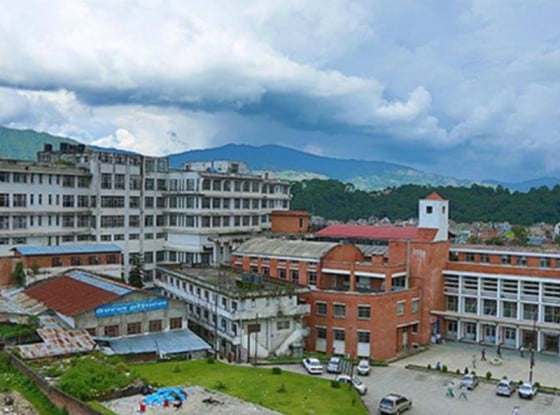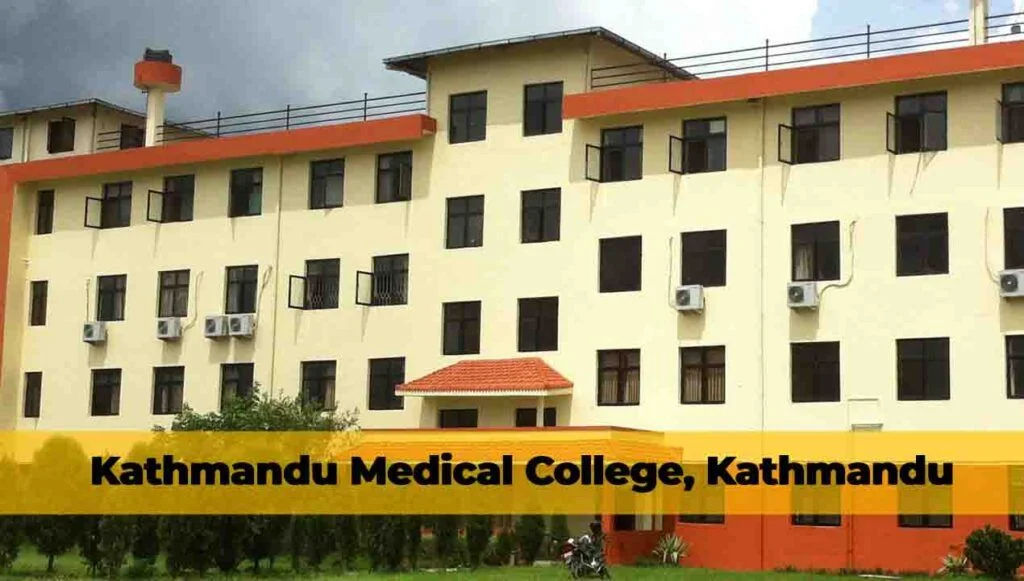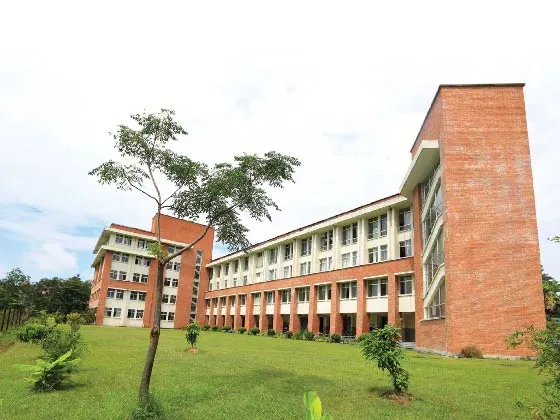
Study in nepal
MBBS in Nepal is increasingly becoming a top choice for foreign students—especially Indians—due to its blend of quality education, affordable fees, and cultural familiarity. The curriculum closely aligns with global medical standards, and the medium of instruction is English, making it easy for international students to adapt. Nepal’s medical colleges are well-equipped with modern infrastructure, experienced faculty, and recognized accreditations from bodies like the National Medical Commission (NMC) of India and the WHO, enabling graduates to practice globally.
At MedVentures Education, we help you choose the best medical university in Nepal, manage the entire admission process, and provide continuous support until you are settled in Nepal and progressing confidently in your medical career.
About Nepal
Nestled in the lap of the Himalayas, Nepal may be small in size, yet it stands as a beautiful South Asian country, famously known as the land of Mount Everest – the highest peak on Earth. Blessed with rich cultural heritage and breathtaking natural beauty, Nepal attracts visitors from around the globe. Its temples, monasteries, and serene landscapes offer peace and charm in equal measure. Kathmandu, the capital city, is the hub of culture and education. The nation is home to diverse ethnicities, languages, and traditions, with a population of about 30 million. While Nepali is the national language, English is widely spoken, making it easy for international students to adapt. Known for its warm hospitality, Nepal shares close cultural ties and similar food habits with India, making it a particularly welcoming destination for Indian students.
Why Study MBBS In Nepal 2025?
Cost-effective Education: Pursuing MBBS in Nepal is highly affordable compared to many other countries offering similar quality education.
Globally Recognized Degrees: Medical universities in Nepal are approved by the NMC, WHO, and other international bodies, ensuring global recognition and opening doors to career opportunities abroad after graduation.
Cultural and Geographical Proximity: Shared cultural values, similar food habits, and close geographical distance make Nepal an ideal choice for Indian students.
Language of Instruction: Most medical colleges in Nepal teach in English, eliminating language barriers for international students.
Clinical Exposure: Students gain hands-on experience through extensive clinical training at well-equipped hospitals, ensuring a strong practical foundation.
Easy Admission Process: Admission to MBBS programs in Nepal is straightforward, with no language proficiency tests like TOEFL or IELTS required. A NEET qualification is sufficient for eligibility.
Safe and Friendly Environment: Nepal offers a peaceful, welcoming, and student-friendly atmosphere, making it a great destination for international students
Cost of Study for MBBS in Nepal 2025-26
The total cost of studying MBBS in Nepal typically ranges between 46–60 lakh INR, covering tuition fees and other academic expenses for the entire course duration. Living costs, including accommodation, food, and transportation, average around 10,000–15,000 INR per month. Many colleges also offer flexible monthly tuition fee installment options, easing the financial burden on students. With its affordable education, excellent medical training, and low living expenses, Nepal stands out as a highly attractive destination for aspiring medical professionals.
Food And Accomodation Cost MBBS In Kazakhstan
The food and accommodation costs in Kazakhstan are considerably lower compared to other study-abroad destinations, making it an economical choice for international students. On average, monthly accommodation expenses range from $100 to $300 depending on whether students opt for university dormitories or private apartments. University hostels are generally more affordable, with basic amenities included, while private apartments can be slightly more expensive but offer more privacy.
As for food, students can expect to spend approximately $100 to $150 per month on groceries and eating out. Local food in Kazakhstan is reasonably priced, and students can enjoy affordable meals in restaurants or cafes. Typical meals in local eateries can cost as little as $2 to $5, while groceries for home-cooking are also quite cheap. Overall, living in Kazakhstan as a medical student is highly affordable, with a total monthly cost for food and accommodation typically ranging from $200 to $450, depending on lifestyle choices.
Quick Information Study MBBS In Nepal
| Recognition | NMC and WHO approved Colleges |
| Eligibility | 50% in Physics, Chemistry and Biology Aggregate |
| Course Duration | 6 Years |
| Minimum Tuition Fee | ₹ 46,00,000 |
| Maximum Tuition Fee | 75,00,000 |
| NEET | Yes, compulsory |
| IELTS/TOFEL | Not Required |
| Medium of Teaching | English |
MBBS In Nepal For Indian Students
MBBS in Nepal has become increasingly popular among Indian students due to its affordability, high-quality education, and cultural similarities. With close proximity and seamless travel between India and Nepal, pursuing medical studies here is both convenient and rewarding. Nepal offers the perfect combination of advanced medical education and a warm, welcoming environment for aspiring doctors from India.
One of the key advantages is that MBBS programs in Nepal are NMC-approved, allowing Indian graduates to return to India and practice medicine after clearing the FMGE/NExT exam. The curriculum closely aligns with Indian medical standards, making it easier for students to adapt and excel. The admission process is straightforward—NEET qualification is mandatory, but there are no other entrance exams or language proficiency tests required. Compared to many other countries, the process is transparent, simple, and affordable, with flexible payment options to accommodate students from middle-income families.
Medical colleges such as Tribhuvan University Institute of Medicine and B.P. Koirala Institute of Health Sciences are known for their excellent infrastructure, experienced faculty, and extensive clinical exposure. Degrees are recognized internationally by WHO and other global medical councils, enabling graduates to explore career opportunities worldwide.
Life in Nepal is also comfortable for Indian students due to similar cultural traditions, festivals, and food habits. English is the primary medium of instruction, ensuring smooth communication in academics. Living expenses are low, with affordable housing, food, and transportation available across the country. The safe and peaceful environment allows students to focus on their studies and personal growth.
Advantages Of Study MBBS In Nepal 2025
MBBS in Nepal offers a range of benefits that attract international students—particularly those from neighboring India. The combination of affordability, quality education, and cultural familiarity makes Nepal a standout choice for medical aspirants.
Affordable Fees: The cost of MBBS in Nepal is significantly lower compared to countries like the USA, UK, or even private medical colleges in India, making quality medical education accessible to a wider group of students.
Recognized Degrees: Medical colleges in Nepal are accredited by the NMC, WHO, and other international organizations, enabling graduates to practice medicine globally after completing their course.
Cultural Familiarity: With shared cultural and linguistic similarities, Indian students find it easy to adjust to life in Nepal. Familiar food, traditions, and festivals make it feel like a home away from home.
No Language Barrier: English is the primary medium of instruction in Nepal’s medical colleges, eliminating the challenges faced by students in countries where unfamiliar languages are used.
Proximity to India: Nepal’s close geographical location allows for easy travel, reducing the emotional strain often associated with studying abroad.
Practical Learning Opportunities: A strong focus on clinical exposure ensures students gain hands-on experience in well-equipped hospitals, building the practical skills necessary to handle real-world medical situations.
Simplified Admission Process: Admission to MBBS programs in Nepal is straightforward—qualifying in the NEET exam is the main requirement, with no additional language tests or complex procedures.
Safe and Friendly Environment: Known for its warm hospitality, Nepal provides a secure and supportive atmosphere that is conducive to both academic success and personal growth.
With its blend of high-quality education, international recognition, and an enriching cultural experience, MBBS in Nepal is an excellent choice for aspiring doctors seeking a balance of quality, affordability, and comfort.
Admission Process For MBBS In Nepal 2025
The admission process for MBBS in Nepal is simple and student-friendly, catering to both national and international applicants:
Step 1: Fill out the application/admission form available on the RMC website.
Step 2: Choose your preferred NMC-approved university for pursuing MBBS in Nepal.
Step 3: Prepare and submit scanned copies of the required documents, including 10th and 12th mark sheets, NEET scorecard (if applicable), medical certificate, and passport.
Step 4: Within 10–15 days of submitting your application, you will receive an invitation letter from the university.
Step 5: Apply for a visa at the respective embassy, allowing approximately 10 days for visa processing.
Required Documents for MBBS in Nepal
To apply for MBBS in Nepal in 2025, international students must prepare and submit a set of essential documents to ensure a smooth admission process. These documents are required for university application, registration, and in some cases, visa processing.
Completed Application Form: Fill out the application form completely—either online or offline—according to the university’s guidelines.
Academic Certificates: Submit copies of your Class 12 certificate with subjects such as Physics, Chemistry, and Biology, ensuring your qualifications meet the university’s eligibility criteria.
Passport Copy: A valid passport is required; however, Indian students are exempt from visa requirements but may still need a passport for formal documentation.
Photographs: Provide 6–8 recent passport-size photographs for application, registration, and other formalities.
Medical Certificate: A certificate from a recognized medical authority confirming that you are medically fit and free from contagious diseases.
Birth Certificate: A copy for verification of date of birth and personal details.
Visa Application Documents (if applicable): For non-Indian international students, once accepted, you can apply for a student visa using documents such as the admission letter, passport, and proof of financial support.
The Eligibility Criteria for MBBS in Nepal
To pursue MBBS in Nepal, candidates must meet the following requirements:
Academic Qualifications: Completion of 10+2 or equivalent with Physics, Chemistry, and Biology, securing at least 50% aggregate marks in PCB.
Age Requirement: Applicants must be at least 17 years old by December 31 of the admission year.
NEET Qualification: For Indian students, clearing the NEET exam is mandatory for admission.
Additional Criteria: Some universities may conduct their own entrance examinations for further assessment.
Passport Requirement: A valid passport is required for international students (not applicable to Indian students).
These straightforward requirements make MBBS admission in Nepal accessible and convenient for aspiring medical students.
Scholarship Offered to Students for MBBS in Nepal 2025-26
Studying MBBS in Nepal is made even more affordable through various scholarship opportunities offered by both government and private institutions. These scholarships aim to support meritorious students as well as those from economically weaker backgrounds in pursuing a medical career.
The Central Government of Nepal and several State Governments provide scholarships that may partially or fully waive tuition fees, significantly reducing the financial burden. Indian students are encouraged to research available scholarship options before applying. One notable example is the North-South Foundation College Scholarship, specifically designed for Indian students studying medicine in Nepal. Applicants for such scholarships typically need to clear a placement test to ensure that financial aid is awarded to genuinely deserving candidates.
Scholarships in Nepal are generally divided into two categories:
Merit-Based Scholarships: For students with exceptional academic performance.
Need-Based Scholarships: For students from economically weaker sections who show strong academic potential.
These programs not only help reduce education costs but also motivate students to maintain high academic standards. By securing a scholarship, aspiring medical professionals can pursue MBBS in Nepal with significantly reduced expenses, making their dream career more achievable.
Best Medical Colleges in Nepal for MBBS
Below mentioned are the top and best medical college in Nepal for MBBS-
Kathmandu Medical College and Teaching Hospital (KMCTH), established in 1997, is a leading private medical institution in Nepal, located in the capital city, Kathmandu. Permanently affiliated with Kathmandu University, it is fully recognized by the Medical Council of Nepal, Sri Lankan Medical Council, General Medical Council (UK), and Medical Council of India.
Nepal, officially the Federal Democratic Republic of Nepal, is a sovereign country in South Asia. It is mainly in the Himalayas, but also includes parts of the Indo-Gangetic Plain. It is the 49th largest country by population and 93rd largest country by area. Capital of Nepal is Kathmandu. landlocked, and borders Tibet in the north and India in the south, east and west, while Bangladesh is located only 27 km (17 mi) from its southeastern tip and Bhutan is separated from it by the Indian state of Sikkim.
MBBS in Nepal Syllabus
| Year | Subjects |
|---|---|
| First Year | Clinical exposure, Communication Skills, Integrated Basic Medical Science, Community Medicine |
| Second Year | Integrated Basic Medical Science Clinical Exposure & Communication Skills |
| Third year | Surgery, Internal Medicine, Gynecology, Disciplines of Forensic Medicine, Obstetrics and Paediatrics, Community Medicine (Applied Epidemiology, Family Health Exercise) medicine |
| Fourth Year | Internal Medicine, Orthopedics, Anaesthesiology, Gynecology, Dentistry, Community Medicine, Obstetrics, Psychiatry, Information Technology, Eye, Radiology, Ethics and Research, Surgery, ENT, Accident and Emergency Medicine, Pediatrics, Dermatology |
| Fifth Year | Biostatistics, Sociology, Community Health Laboratory, Epidemiology, Communication skills, Environmental Health, Demography, Community Health Diagnosis, Family Health, Information Technology, Nutrition, Health Education |
MBBS In Nepal Vs MBBS in India
| Aspect | MBBS In Kazakhstan | MBBS In India |
|---|---|---|
| Tuitin Fees | The yearly cost of MBBS in Kazakhstan is much cheaper, ranging from $3,000 to $7,000 per year. | Private medical colleges charge anywhere between ₹10 to ₹60 lakhs for the entire course. |
| Quality of Education | Medical universities in Kazakhstan offer degrees recognized worldwide and approved by the National Medical Commission of India. The curriculum follows international standards, with practical training in affiliated hospitals. | Indian medical colleges provide high-quality education, but competition for government colleges is intense. |
| Admission Procedure | Admission is based on academic performance in the 12th standard, making it much easier to secure a seat. | Students must clear highly competitive entrance exams like NEET for MBBS admission. |
| Living Expenses | The cost of living in Kazakhstan is lower compared to expensive Indian cities like Delhi and Mumbai. | Living expenses in India vary widely, with metropolitan cities being costly. |
| Overall Advantage | MBBS in Kazakhstan offers an inexpensive yet high-quality education with an easier admission process. | MBBS in India is more expensive and highly competitive in terms of admission. |
Frequently Asked Questions
How long is the MBBS course in Nepal?
The MBBS course in Nepal typically takes 5.5 years to complete, including a 1-year compulsory internship.
Is NEET mandatory for MBBS admission in Nepal?
Yes, Indian students must qualify for the NEET exam to be eligible for MBBS admission in Nepal.
What is the medium of instruction for MBBS in Nepal?
The medium of instruction is primarily English, with some clinical interactions in Nepali or Hindi.
What is the age criterion for MBBS admission in Nepal?
Applicants must be at least 17 years old by December 31 of the year of admission.
Is an MBBS degree from Nepal accepted in India?
Yes, MBBS degrees from medical colleges in Nepal listed in WDOMS and recognized by the National Medical Commission are valid in India. Graduates must clear the FMGE/NExT to practice.


